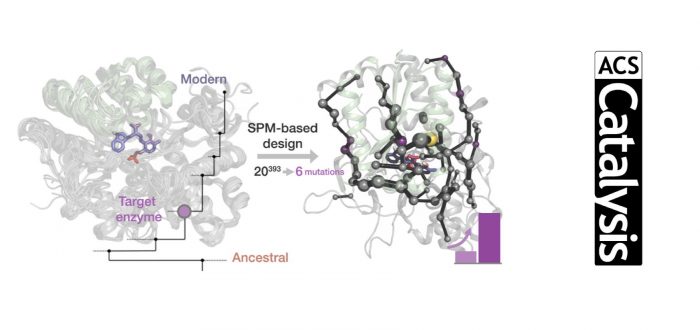In the oriented external electric field-driven catalysis, the reaction rates and the selectivity of chemical reactions can be tuned at will. The activation barriers of chemical reactions within external electric fields of several strengths and directions can be computationally modelled. However, the calculation of all the required field-dependent transition states and reactants is computationally demanding,
- sec.iqcc@udg.edu
- +34 972 41 83 57
Category: Portada
Every year in November, the IQCC is organizing together with the Scientific Culture and Digital Communication (C4D) unit of the UdG some activities for Science Week with the aim to bring our science closer to the Girona general public. Last Thursday, November 18, 2021, the Diada de Sant Albert took place at Science Faculty of
Last Thursday, the IQCC organized the second edition of the IndustryQCC Forum with five national and international companies (Johnson & Johnson Innovation, NBD Nostrum Biodiscovery, Institute of Agrifood Research and Technology, Huntsman and Software for Chemistry & Materials) during the Science Week. The IndustryQCC Forums provide young (and more advanced) researchers of IQCC the opportunity
Allostery is a central mechanism for the regulation of multi-enzyme complexes. The mechanistic basis that drives allosteric regulation is poorly understood but harbors key information for enzyme engineering. In the present study, we focus on the tryptophan synthase complex that is composed of TrpA and TrpB subunits, which allosterically activate each other. Specifically, we develop
The IQCC started a new series of online talks to address challenges in the research fields where the IQCC is playing a role, through the investigations of one of the Principal Investigators. An external expert is invited to give a seminar, together with one of the junior researchers of the IQCC. These complementary views will highlight the current state-of-the-art
Modulation of a mu-1,2-Peroxo Dicopper(II) Intermediate by Strong Interaction with Alkali Metal Ions
The properties of metal/dioxygen species, key intermediates in oxidation catalysis, can be modulated by interaction with redox-inactive Lewis acids, but structural information about these adducts is scarce. Here we demonstrate that even mildly Lewis acidic alkali metal ions, which are typically viewed as innocent “spectators”, bind strongly to a reactive cis-peroxo dicopper(II) intermediates. Unprecedented structural
Next Friday (5th of November 11.00h, Aula Magna – Facultat de Ciències) will be the defense of the doctoral thesis of Margarida Borrell Recasens, titled “Small-molecule mimics of Rieske oxygenases.Application to selective aliphatic C-H hydroxylation and olefin syn-dihydroxylation”, supervised by Miquel Costas from IQCC. We wish her good luck and all the best! Girona, October
Last week, Oriol Planas, a former member of the IQCC, was appointed as a Lecturer in Organic Chemistry by Queen Mary University of London, where he will start his own research group at the School of Physical and Chemical Sciences. Oriol did his PhD thesis with success on “Cobalt-catalyzed C-H Activation” supervised by Xavi Ribas
Yesterday took place the Autumn edition of the IQCC Forum, a quarterly meeting-place where high-quality science is discussed. The IQCC Forum gives the opportunity for PhD and postdoc members of the IQCC to present their work to a select group of critical researchers, enhancing intra-IQCC collaborations and promoting knowledge exchange within the institute. This will
Dr. Marc Garcia-Borràs (IQCC) is part of an international multidisciplinary research team led by Prof. Katherine Ryan (University of British Columbia, Canada) that has recently published a new study in PNAS entitled “A shared mechanistic pathway for pyridoxal phosphate–dependent arginine oxidases”. Pyridoxal phosphate (PLP)-dependent enzymes rarely react with oxygen, but an emerging group of PLP-










